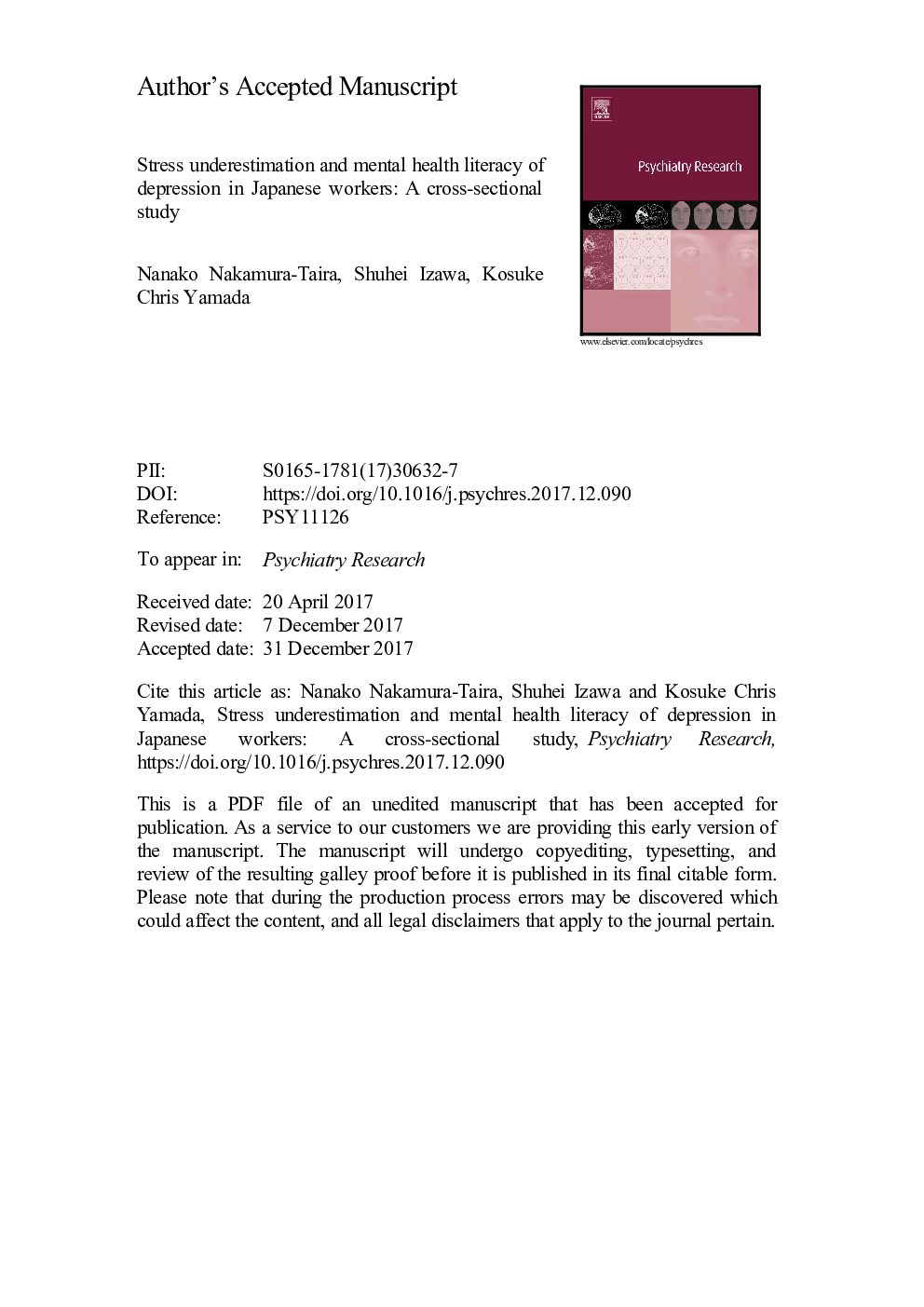| Article ID | Journal | Published Year | Pages | File Type |
|---|---|---|---|---|
| 6811610 | Psychiatry Research | 2018 | 29 Pages |
Abstract
Appropriately estimating stress levels in daily life is important for motivating people to undertake stress-management behaviors or seek out information on stress management and mental health. People who exhibit high stress underestimation might not be interested in information on mental health, and would therefore have less knowledge of it. We investigated the association between stress underestimation tendency and mental health literacy of depression (i.e., knowledge of the recognition, prognosis, and usefulness of resources of depression) in Japanese workers. We cross-sectionally surveyed 3718 Japanese workers using a web-based questionnaire on stress underestimation, mental health literacy of depression (vignettes on people with depression), and covariates (age, education, depressive symptoms, income, and worksite size). After adjusting for covariates, high stress underestimation was associated with greater odds of not recognizing depression (i.e., choosing anything other than depression). Furthermore, these individuals had greater odds of expecting the case to improve without treatment and not selecting useful sources of support (e.g. talk over with friends/family, see a psychiatrist, take medication, see a counselor) compared to those with moderate stress underestimation. These relationships were all stronger among males than among females. Stress underestimation was related to poorer mental health literacy of depression.
Related Topics
Life Sciences
Neuroscience
Biological Psychiatry
Authors
Nanako Nakamura-Taira, Shuhei Izawa, Kosuke Chris Yamada,
